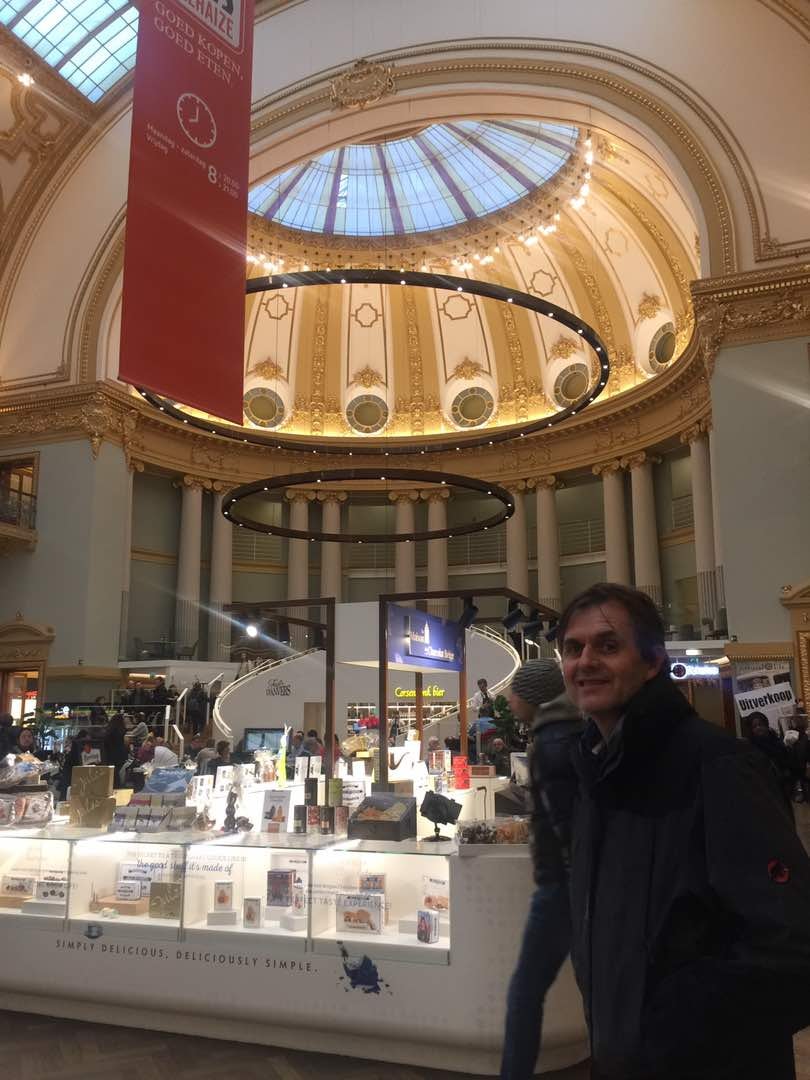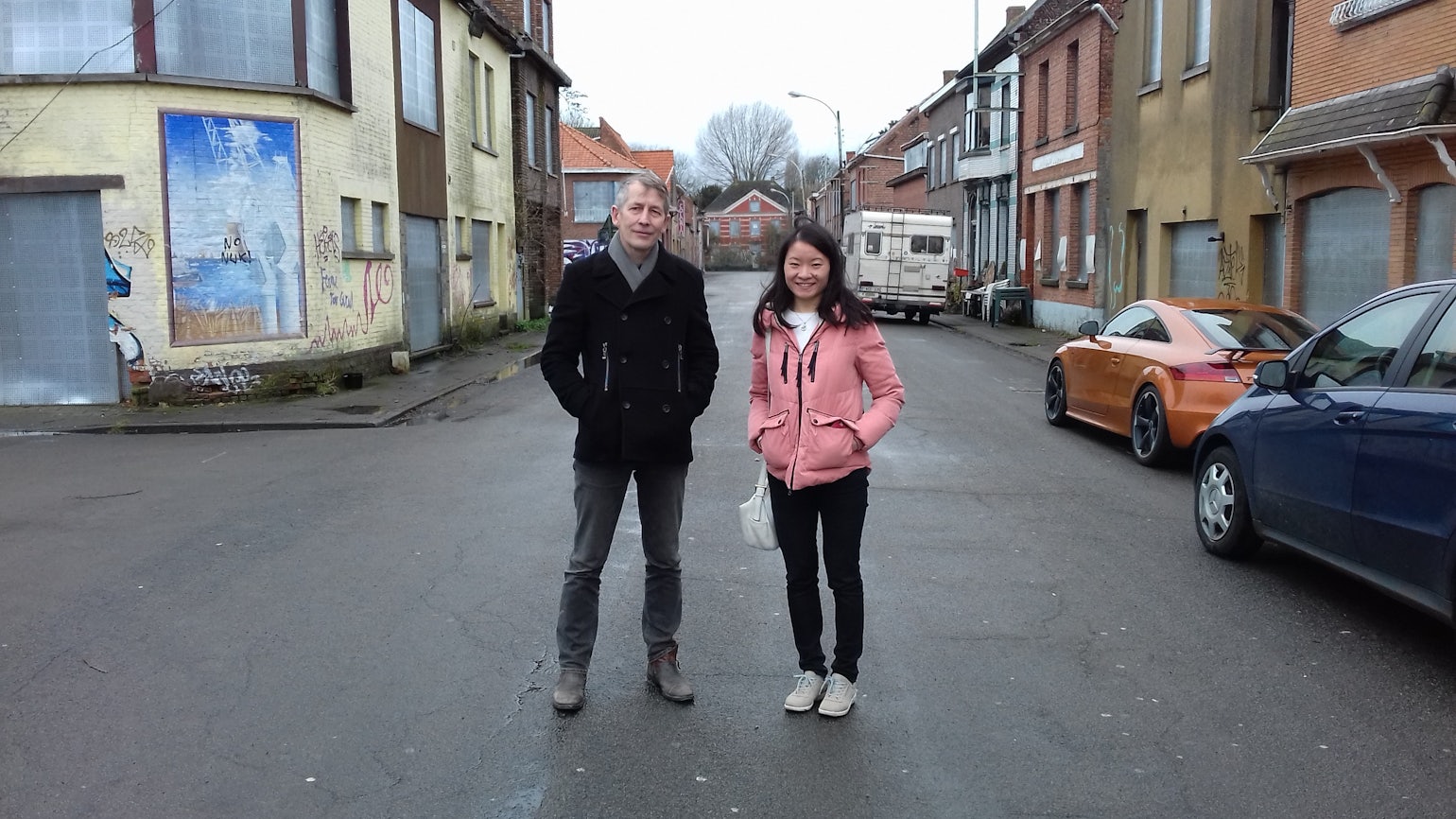The Translators' House: A Source of Inspiration
Who are the residents of the Antwerp Translators’ House, and what do they do? David Colmer and Jiang Jiahui, who stayed with us in March, give us a glimpse of their day-to-day activities and the importance of their stay for their current translation projects.
David Colmer and Belgium’s World War II history
Following in the footsteps of several other translators of Will, I recently spent a fortnight in the Antwerp translators’ house, soaking up the atmosphere not just of the city in general but of Zurenborg in particular, the neighbourhood where much of the book is set. Out on foot or taking advantage of the exemplary Velo bike rental system, I saw many of the streets and squares that feature in the book and the historical events it’s based on: sometimes seeking them out; sometimes simply because I happened to look up and recognise a name. Full immersion.

No immersion possible in the wintry Stadspark where the lake was virtually empty, but I stood on the bridge where young Wilfried and Yvette looked down at the water, then carried on to pause by the shrubbery where they reconciled and sealed their engagement. Like old Wilfried I’m not an avid shopper, but the architecture of the former festival hall, now a garish shopping centre, remains impressive and even grander than I imagined. Having seen it at first hand will undoubtedly influence my translation of the passages set there.
Meetings with the author, Jeroen Olyslaegers, and fellow translator Isabel Hessel gave me new insights into the novel and made me more optimistic about its translatability, while a visit to the stunning and chastening memorial and Holocaust museum Kazerne Dossin in nearby Mechelen proved very useful for visualising key scenes and heightened my sense of the import of the book and my task. I can recommend it to anyone, but especially those engaged with Belgium’s World War II history.
All in all, my stay in Antwerp proved the perfect transition to the revision phase of my translation, so I'm very grateful for the opportunity to spend some time at the Translators' House.
Jiang Jiahui and the disappearance of the Flemish farmer
David Colmer was joined at the Translators’ House by Chinese translator Jiang Jiahui, who is currently working on a translation of the non-fiction work This Is My Farm by Chris De Stoop. This book tells the author’s personal story: he grew up as a farmer’s son and later returned to his parents’ unoccupied farm in the Hedwige Polder, observing the changed landscape around him and the disappearance of the Flemish farmer.
During her stay, Jiang met with author Chris De Stoop to visit the Hedwige Polder and the polder village of Doel. There she was able to see the impact of industrial expansion and environmental compensation on the rural landscape for herself.

Jiang described the trip as painful but remarkable: “It’s painful to see how the village has fallen into decay. Dead streets, abandoned houses, doors and windows nailed shut… You wouldn’t believe your own eyes. However, it’s remarkable to stand in places which formerly only existed on paper, to get inspiration by walking on that soil and by listening to the personal views of the writer and trying to feel what he feels.”